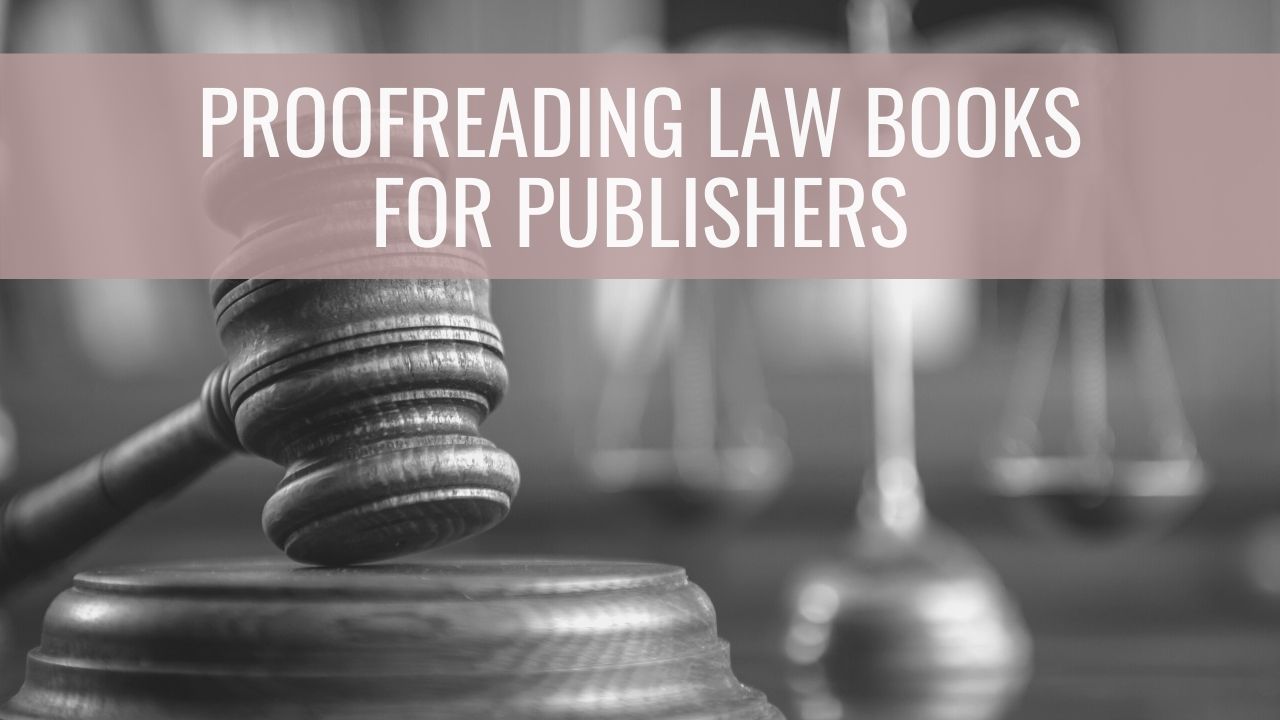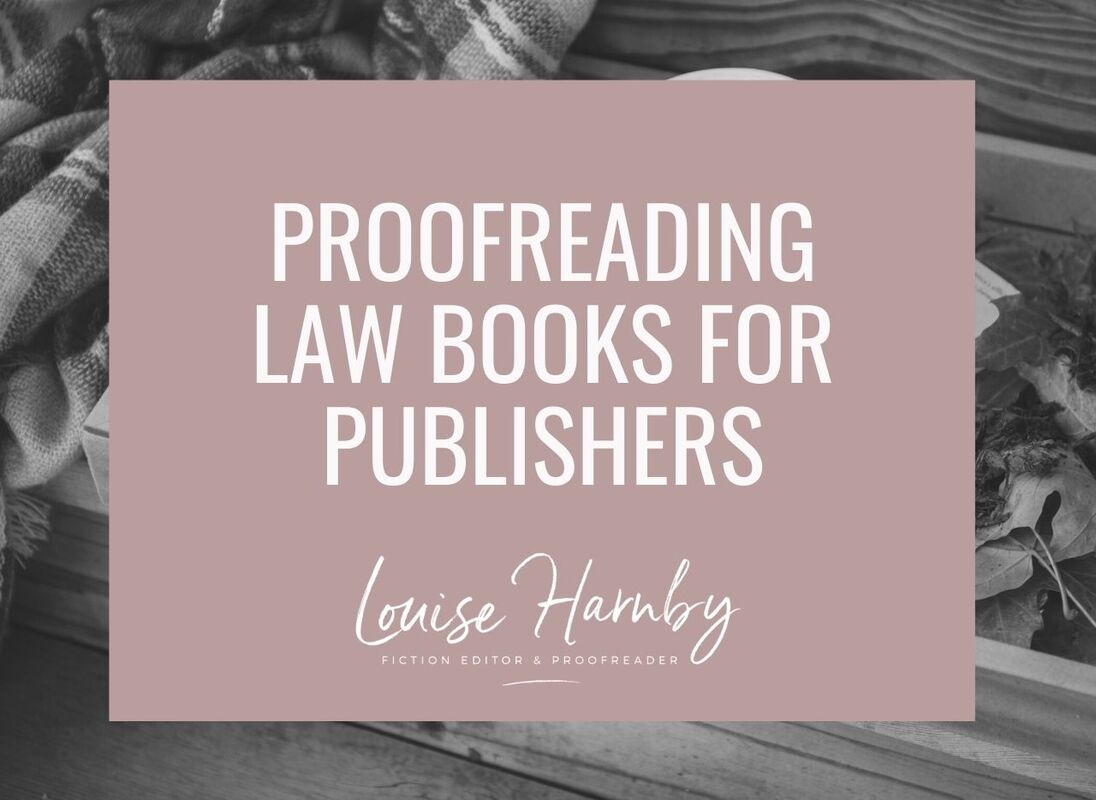|
You don’t necessarily need to have a legal background to proofread law books. If you’re comfortable with often dense and highly complex material, huge numbers of footnotes, and lengthy citations – and the legalese doesn't scare you to death – then this could be the work for you!
The many faces of the law
The law covers just about every aspect of human life, so the books on offer tackle a multitude of subjects. I’ve worked on legal books with a focus on public health, marine conservation, labour law, genetic resources, constitution building, piracy, family law, comparative law, European law, intellectual property rights, religion, climate change, competition law and cartelism, and environmental governance. Since I came to this work with a strong background in the social sciences, it suited me down to the ground. I’ve also been pleasantly surprised by the readability of most of the law books I’ve proofread. They’re often written by lawyers for lawyers (or by law professors for their colleagues and students) so you won’t be confronted by the impenetrable sea of words that often appear in legal documents. The authors aim to communicate with their readership just like any other writer. If you have experience of proofreading high-level academic books and journals, legal work shouldn’t present you with a problem.
What are clients looking for?
Rather than making assumptions based on my own experience, I asked one of my publisher clients to tell me what she looks for in a legal proofreader. Here’s a summary of our discussion:
Other points to bear in mind
Footnotes (or endnotes) tend to be lengthy. Sometimes it can feel like there’s more text in the notes than in the main body of the book.
Should you?
Actually, none of the above issues is problematic as long as you have a good concentration span and you aren’t surrounded by distractions. Distractions and proofreading don’t tend to go well together at any time, but with legal proofreading you may end up gnawing off your own arm if you don’t have the space to do the work without interruption. Working with law books is not unlike working with any other specialism (social science, STM, fiction) in that you need to be able to work within a framework of industry-recognized citation conventions, house style guides, and author preferences, while all the time employing a good old-fashioned dose of common sense. Talking to your client so that you understand what’s expected is crucial whatever kind of work you’re doing because only in that way will you understand the implications of your mark-up. When I was first approached with an offer to work in this field, I accepted it with some trepidation. A few years on, I can honestly say that I thoroughly enjoy it. Proofreading law books can be a rewarding and highly informative experience. As the world changes, so does the law. Globalization, public health awareness, climate change, and the birth of the internet have given rise to new dimensions within the law and I rather like getting paid to read about them.
Louise Harnby is a line editor, copyeditor and proofreader who specializes in working with crime, mystery, suspense and thriller writers.
She is an Advanced Professional Member of the Chartered Institute of Editing and Proofreading (CIEP), a member of ACES, a Partner Member of The Alliance of Independent Authors (ALLi), and co-hosts The Editing Podcast. Visit her business website at Louise Harnby | Fiction Editor & Proofreader, say hello on Twitter at @LouiseHarnby, connect via Facebook and LinkedIn, and check out her books and courses.
4 Comments
Jessyka
8/5/2017 05:43:58 pm
Hi Louise,
Reply
Louise Harnby
8/5/2017 06:50:51 pm
Glad you found it so useful, Jessyka!
Reply
Jonathan
28/11/2018 07:04:35 pm
Hi Louise,
Reply
Louise Harnby
28/11/2018 09:33:47 pm
Hi, Jonathan. It's always going to come down to how much time you're prepared to invest in marketing. That's the same for every subject specialism. And what you need to earn to 'make a living' might be different to what another editor needs. If you want to edit and proofread legal works, you'll need to be visible to those who want your services, so start working on a marketing strategy now so you can assess the longer-term viability. Good luck!
Reply
Leave a Reply. |
BLOG ALERTSIf you'd like me to email you when a new blog post is available, sign up for blog alerts!
TESTIMONIALSDare Rogers'Louise uses her expertise to hone a story until it's razor sharp, while still allowing the author’s voice to remain dominant.'Jeff Carson'I wholeheartedly recommend her services ... Just don’t hire her when I need her.'J B Turner'Sincere thanks for a beautiful and elegant piece of work. First class.'Ayshe Gemedzhy'What makes her stand out and shine is her ability to immerse herself in your story.'Salt Publishing'A million thanks – your mark-up is perfect, as always.'CATEGORIES
All
ARCHIVES
July 2024
|
|
|
|



















 RSS Feed
RSS Feed





